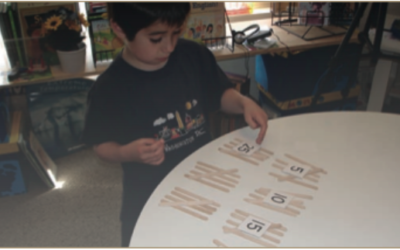Before appropriate connections have been made in the brain between the senses and structures in the brain, it is difficult for the child to make sense of the word and is very difficult for him to pay attention (Gold, 2008).
Merzenich discovered that paying close attention is essential to long-term plastic changes in the brain and that neural connections can be altered only if there is full attention to what we do. He noticed that when we try to learn while having a divided attention, the brain maps created are not substantial (Doidge, 2007).
This means that even though right now you might not have great ability to attend or focus, but if you want to and you try, then you are putting in the effort that will allow for neurons to grow. If this act of trying is repeated on a consistent basis, like every day, then those nerve connections get stronger and the ability to focus and attend will improve. All of a sudden you will notice that it is not as difficult to pay attention as it once was.
This idea of attention being a necessary agent of change is now being used with many practitioners, such as Anat Baniel. Anat works with children with both physical challenges, such as Cerebral Palsy, and learning challenges, such as Autism. For both of these types of challenges, she states that the number one essential, of the nine that she has coined, that makes the most significant changes is “movement with attention.” She states that “the child’s ability to notice differences in what she sees, hears, tastes, smells, and feels in her moving body is at the heart of the brain’s capacity for creating new neuroconnections and pathways” (p. 30). Therefore, if we want to create changes in our brain maps either on a physical or academic level, significant attention to what we are learning is necessary (Baniel, 2012).
In preschool it is expected that children are only able to pay attention for just a few minutes, however as the child grows, so do the expectations. When children grow in age but their brains are not developing accordingly, they then begin to differentiate from their peers in their ability to attend to the lessons.
–This is from my book: Movement Makes Math Meaningful: Away From The Desk math Lessons Aligned with the Common Core





0 Comments